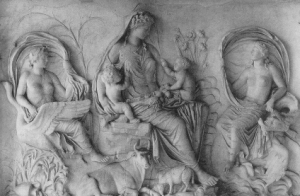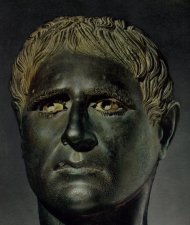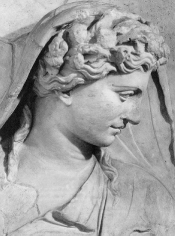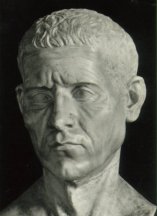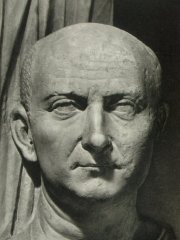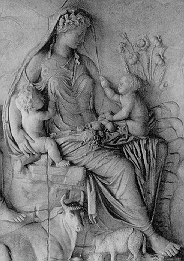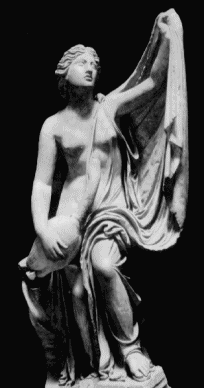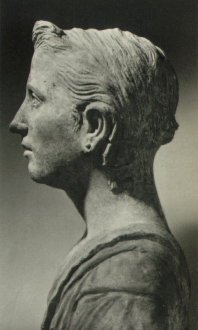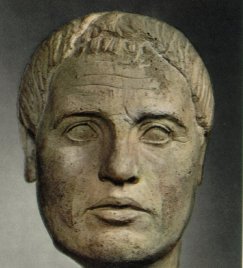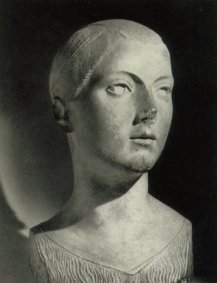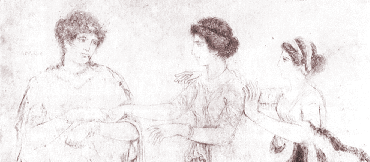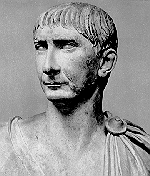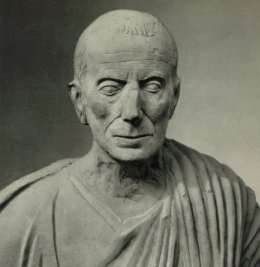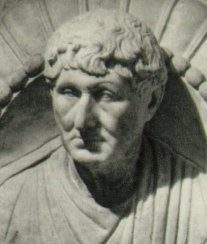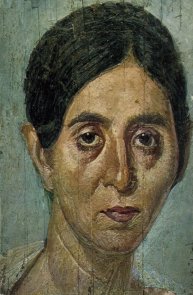
 This is one of the
dies nefasti (N), a day on which no legal action or public voting
could take place. This is one of the
dies nefasti (N), a day on which no legal action or public voting
could take place.
 This was the third
day of the Megalesia, or the Great Games, which were celebrated for
seven days in honor of Cybele, the Great Mother goddess or Mater Magna.
Cybele was also called Ops and her priests were called Galli. She was
the mother of Ceres by Saturn, the father of Jove. This was the third
day of the Megalesia, or the Great Games, which were celebrated for
seven days in honor of Cybele, the Great Mother goddess or Mater Magna.
Cybele was also called Ops and her priests were called Galli. She was
the mother of Ceres by Saturn, the father of Jove.
 This was the day, the
sixth day of the Greek month Munychion, that Theseus sailed from Athens
with a ship of hostages for Minos and a fleet of ships he had constructed
in secret. The year was, nominally, 1400 BCE and the supreme dominance
the Cretans had enjoyed over the Mediterranean was about to be reversed.
Annual hostages were given to guarantee Athenian behavior after a previous
revolt. Taking advantage of the Cretan navy's absence from Cnossos,
the Athenians suddenly sailed into the port and stormed the city. Theseus
led them through the maze-like palace where they killed Minos the king,
who was known as the "Bull of Minos." Meanwhile the Athenian hostages
killed the guards and freed themselves. Afterwards a treaty was signed
and sealed by the marriage of Theseus and Ariadne. Athens commemorated
this event by annual sending a procession of virgins to the temple of
Apollo at Delphi. This was the day, the
sixth day of the Greek month Munychion, that Theseus sailed from Athens
with a ship of hostages for Minos and a fleet of ships he had constructed
in secret. The year was, nominally, 1400 BCE and the supreme dominance
the Cretans had enjoyed over the Mediterranean was about to be reversed.
Annual hostages were given to guarantee Athenian behavior after a previous
revolt. Taking advantage of the Cretan navy's absence from Cnossos,
the Athenians suddenly sailed into the port and stormed the city. Theseus
led them through the maze-like palace where they killed Minos the king,
who was known as the "Bull of Minos." Meanwhile the Athenian hostages
killed the guards and freed themselves. Afterwards a treaty was signed
and sealed by the marriage of Theseus and Ariadne. Athens commemorated
this event by annual sending a procession of virgins to the temple of
Apollo at Delphi.
 On this day in 46 BCE,
Caesar defeated the troops of Pompey's son Sextus at Thapsus in North
Africa. On this day in 46 BCE,
Caesar defeated the troops of Pompey's son Sextus at Thapsus in North
Africa.
 Jesus of Nazareth was
arrested by Roman authorities this day in 30 AD. As the so-called "King
of the Jews," he was a revolutionary threat to Rome, whose Senate had
given this title to Herod's family alone. Later Christians, bitterly
at odds with the Jews who flatly rejected the suggestion that Jesus
was the Messiah, would blame the Jews for his death, supposedly as the
result of the charge of blasphemy. But the Jews had no death penalty,
and the Romans had no conception of blasphemy as a crime. Besides, the
Romans used crucifixion strictly as a means of intimidating revolutionaries,
and for no other reason. Jesus of Nazareth was
arrested by Roman authorities this day in 30 AD. As the so-called "King
of the Jews," he was a revolutionary threat to Rome, whose Senate had
given this title to Herod's family alone. Later Christians, bitterly
at odds with the Jews who flatly rejected the suggestion that Jesus
was the Messiah, would blame the Jews for his death, supposedly as the
result of the charge of blasphemy. But the Jews had no death penalty,
and the Romans had no conception of blasphemy as a crime. Besides, the
Romans used crucifixion strictly as a means of intimidating revolutionaries,
and for no other reason.
 April is named after
the Greek goddess Aphrodite -- Venus to the Romans. Venus, the goddess
of love and beauty, was the daughter of Zeus and Dione. April is named after
the Greek goddess Aphrodite -- Venus to the Romans. Venus, the goddess
of love and beauty, was the daughter of Zeus and Dione.
|
 |
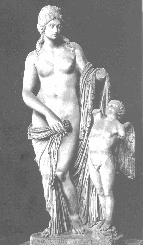

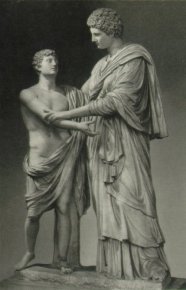

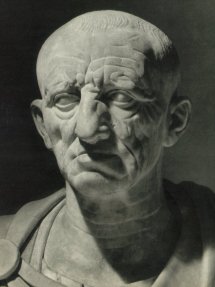 This is one of the dies comitiales (C), when committees of citizens
could vote on political or criminal matters.
This is one of the dies comitiales (C), when committees of citizens
could vote on political or criminal matters.






